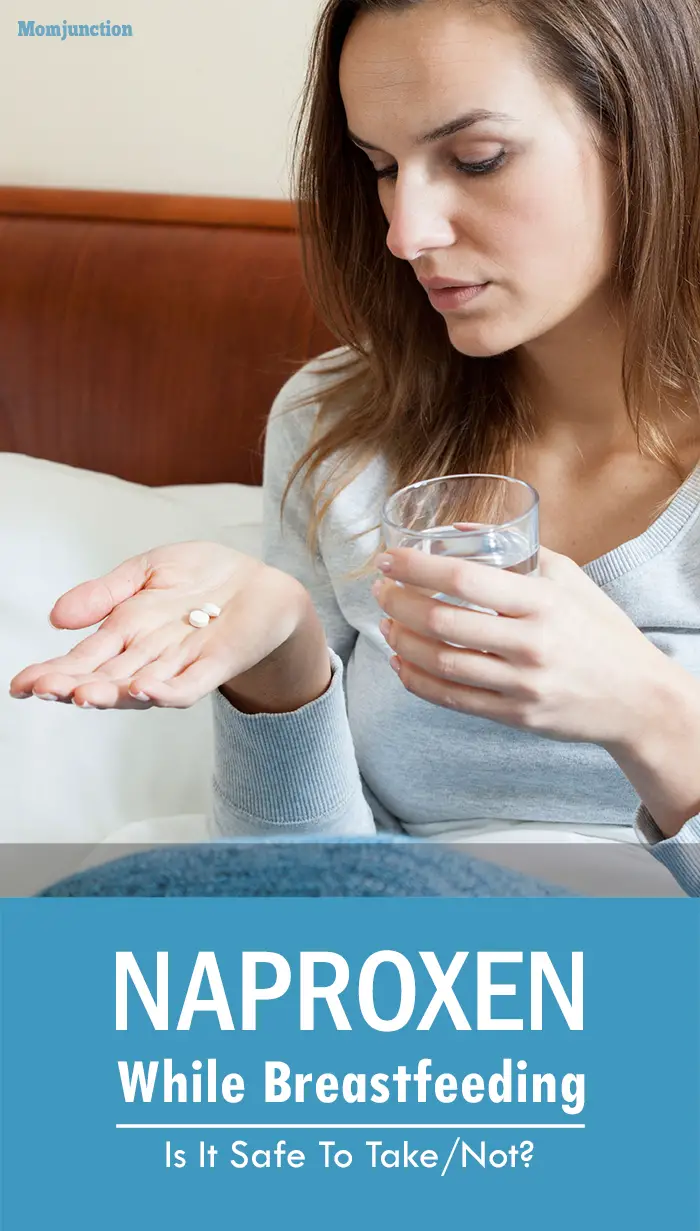Does Aleve Cause Birth Defects When Taken In The First Trimester
Not likely. The results from a few large studies on aleve did not show an increased chance for birth defects. A small increased chance for heart defects has been reported in some studies looking at aleve and other NSAIDs in early pregnancy. Other factors such as the health condition for which aleve was taken, could also be the cause. A small association with cleft lip and palate and aleve use has also been reported but cannot be proven. In another study where 23 pregnant women took aleve everyday to help treat lupus and arthritis, there were no birth defects seen in the babies.
Is Naproxen Sodium Safe During Pregnancy
Naproxen sodium is a commonly available pain medication that finds space in almost everyones medicine cabinet. You may know it better as Aleve, Naprosyn, Naproxen, Aflaxen and Anaprox. It is used for various conditions like headaches, toothache, muscle pain, period cramps, and more. It also works as an anti-inflammatory drug advised to relieve joint stiffness, pain, and swelling caused by chronic conditions like arthritis.
As with everything else like your diet and physical activity, you have to mind your meds during pregnancy you cant just pop anything without thinking of the consequences. This is also the time you so want to resort to painkillers because pregnancy brings with it so many new aches and painsfrom leg cramps to round ligament pains, and more.
This fear of not knowing what medication is safe or not can force many pregnant women to bear immense pain in silence rather than taking a painkiller. But dont think youre being brave and strong by doing so. Research has revealed that chronic, severe pain when left untreated during pregnancy is associated with high blood pressure, anxiety, and depression.1
But a lot of drugs, especially painkillers, do not make their way to your ob-gyns list of safe medicines as there may be chances of your fetus getting affected by them. So can you take naproxen while pregnant? Or is it one of those blacklisted drugs during those nine months?
Can Taking Aleve Early In Pregnancy Increase Chance Of Miscarriage
Studies have suggested that the use of NSAIDs may increase the chance of miscarriage. NSAIDs reduce prostaglandins in the body. Taking aleve over a long time period may increase the chance of miscarriage in some women by reducing prostaglandins.
If taking aleve once or twice before knowing the pregnancy, it is not overly concerned, however, if taking daily, talk to the doctor about whether to continue or not. Some women may benefit from staying on the NSAIDs.
Read Also: Is It Safe To Take Tums While Pregnant
What Painkillers Can Cause Miscarriage
Taking any painkillers from the class of medicines known as non-steroidal anti-inflammatory drugs such as ibuprofen, naproxen and Diclofenac in the first 20 weeks after conception increases the risk of miscarriage by 2.4 times, the study found.
What Safety Concern Is Fda Announcing

The U.S. Food and Drug Administration is warning that use of nonsteroidal anti-inflammatory drugs around 20 weeks or later in pregnancy may cause rare but serious kidney problems in an unborn baby. This can lead to low levels of amniotic fluid surrounding the baby and possible complications. NSAIDs are commonly used to relieve pain and reduce fevers. They include medicines such as aspirin, ibuprofen, naproxen, diclofenac, and celecoxib. After around 20 weeks of pregnancy, the unborn babies kidneys produce most of the amniotic fluid, so kidney problems can lead to low levels of this fluid. Amniotic fluid provides a protective cushion and helps the unborn babies lungs, digestive system, and muscles develop.
Although this safety concern is well known among certain medical specialties, we wanted to communicate our recommendations more widely to educate other health care professionals and pregnant women. This issue affects all NSAIDs that are available by prescription and those that can be bought over-the-counter without a prescription.
Don’t Miss: Can I Use Vagisil Wash While Pregnant
Talk To Your Doctor About The Right Medicines For You
No matter what symptoms you might be experiencing, its good to talk to your doctor about what medications or treatments are best for you and your baby. If youd like to talk to one of our doctors about safe medications to take while pregnant, contact us at our Eugene or Springfield locations.
You can also see our full list of recommended over-the-counter medications to take while youre pregnant.
What Is My Risk
All medicines have side effects even when used correctly as prescribed. It is important to know that people respond differently to all medicines depending on their health, the diseases they have, genetic factors, other medicines they are taking, and many other factors. As a result, we cannot determine how likely it is that pregnant women will experience these side effects when taking NSAIDs.
Don’t Miss: Can You Donate Plasma While Pregnant
What Pregnant Women Can Take For Yeast Infections
Safe to take: Monistat, Gynelotrimin
Yeast infections are common during pregnancy, and while the condition won’t harm the baby, the last thing you want to do is suffer through the itchy discomfort. “There is some absorption of vaginal creams into the body and blood stream, but doses are low and no studies show that it affects baby or mom negatively,” says Dr. Park. “We don’t prescribe the oral pill diflucan or fluconzaole because observational studies show that moms who have had to take extended doses for chronic fungal infections have had babies with birth defects.” However, it’s safe to take this oral yeast infection medication when breastfeeding if you get the fungal infection known as thrush from your baby.
Tylenol While Pregnant: Safe
Acetaminophen, such as Tylenol, is the safest option to take during pregnancy however, take as little of it as possible for the shortest course, says Soma Mandal, MD, a board-certified internist at Summit Medical Group in Berkeley Heights, New Jersey.
Women who took acetaminophen were less likely to have birth defects, Dr. Mandal says of the study.
While acetaminophen may be the drug of choice when looking for pain relief while pregnant, its still important to read the labels every time you purchase medication.
Avoid combination medications, so you do not end up taking an unnecessary medication or a dangerous medication, says Danielle Plummer, Pharm.D., the founder of HG Pharmacist. For example, Excedrin has not only acetaminophen but also aspirin and caffeine, so avoid it.
Also Check: Can You Find Out Who The Father Is While Pregnant
When Might Nsaids Be Necessary
In rare cases, the benefits of NSAID treatment may outweigh the risks during weeks 20 and 30 of pregnancy. For example, some women may be prescribed low-dose aspirin to prevent or delay preeclampsia in patients with high blood pressure, a history of preeclampsia, or those carrying twins or more. Some Ob/Gyns may recommend it to potentially prevent early pregnancy loss or preterm birth.
These patients should take the lowest effective dose for the shortest amount of time. Doctors should avoid prescribing NSAIDs after 30 weeks’ gestation. If you must take NSAIDs after 20 weeks, your doctor might recommend ultrasound monitoring to keep an eye on the amniotic fluid levels.
The FDA’s MedWatch Online Voluntary Reporting Form is available for individuals to report serious symptoms or side effects related to medications. To report a concern, you may fill out FDA’s online form.
When Can I Resume Taking Aleve
You can take Aleve after you give birth, and you will probably be pretty darn happy about that! Whether you give birth vaginally or have a C-section, you will more than likely experience pain and discomfort as your body recovers.
“NSAIDs are the first-line management in postpartum pain as they not only help manage pain but they also decrease inflammation as a result of tissue trauma with birth,” explains Dr. Gray.
You May Like: Getting Braces While Pregnant
What If I Take Ibuprofen Before Realizing Im Pregnant
Of course, theres the possibility of taking ibuprofen before realizing that youre pregnant. This can happen since some women dont learn about a pregnancy until halfway through the first trimester. Should you worry?
Although experts recommend avoiding ibuprofen during pregnancy, the good news is that taking the medication before you know youre pregnant is unlikely to harm your baby. Just make sure you stop taking the drug as soon as you learn your pregnancy status.
If youve taken ibuprofen at any point during pregnancy, notify your doctor.
Taking Medicine During Pregnancy

- Volume 52Issue 1Journal of Midwifery & Women’s Health
- pages: 85-85
- First Published online: December 24, 2010
Most medicines are safe to take during pregnancy, but a few can harm a baby. Sometimes a woman needs to take a medicine because her illness could hurt her baby so taking the medicine is safest. This handout answers questions about taking medicines during pregnancy. The next page of this handout reviews common medications that you might need and lists websites you can use to check if a medicine is safe during pregnancy.
Read Also: Can You Donate Plasma While Pregnant
Avoiding Risks While Using Naproxen
When Naproxen causes a headache, which it is intended to relieve, and triggers other adverse outcomes, ask about alternatives. Naproxen side effects are not unusual, and, like any other drug, it can cause adverse outcomes too. One must be aware of Naproxen brand names so that it doesnt cause confusion when a doctor prescribes a new medication.
One must be careful when using Aleve during pregnancy or while breastfeeding. It is only safe to take Aleve during breastfeeding if the doctor prescribes.
People who develop a dependence or addiction to Aleve should not attempt to withdraw from the drug without proper medical attention. A rehab facility is the initial step in recovery from the addiction and overcoming the withdrawal symptoms. The specialized addiction treatment programs aim to resolve the initial cause of the addiction and fortify ones mental strength to prevent possible relapse.
Medications And Breast Milk
When you take a medication, the drug begins breaking down, or metabolizing, as soon as you swallow it. As its breaking down, the drug transfers into your blood. Once in your blood, a small percentage of the medicine can pass to your breast milk.
How soon you take a medication before nursing or pumping can impact how much of the medication may be present in the breast milk your baby consumes. Ibuprofen generally reaches its peak level at about one to two hours after being taken orally. Ibuprofen shouldnt be taken more than every 6 hours.
If youre worried about passing medicine to your baby, try to time your dose after breastfeeding so more time passes before your childs next feeding. You can also feed your baby breastmilk that youve expressed before taking your medication, if available, or formula.
Also Check: Can I Use Vagisil Wash While Pregnant
What Is Fda Doing
For prescription NSAIDS, we are requiring changes to the prescribing information to describe the risk of kidney problems in unborn babies that result in low amniotic fluid. We are recommending avoiding NSAIDs in pregnant women at 20 weeks or later in pregnancy rather than the 30 weeks currently described in NSAID prescribing information. At around 30 weeks, NSAIDs can cause a problem that may result in heart issues in the unborn baby. If deemed necessary by a health care professional, use of NSAIDs between 20 and 30 weeks of pregnancy should be limited to the lowest effective dose for the shortest duration. The changes to the prescribing information also indicate that health care professionals should consider ultrasound monitoring of amniotic fluid if NSAID treatment extends beyond 48 hours.
We will also update the Drug Facts labels of OTC NSAIDs intended for use in adults. These labels already warn to avoid using NSAIDs during the last 3 months of pregnancy because the medicines may cause problems in the unborn child or complications during delivery. The Drug Facts labels already advise pregnant and breastfeeding women to ask a health care professional before using these medicines.
One exception to the above recommendations is the use of the low 81 mg dose of the NSAID aspirin for certain pregnancy-related conditions at any point in pregnancy under the direction of a health care professional.
What Can I Take For Indigestion And Heartburn
Tums, Maalox and Mylanta are all recommended options to help relieve indigestion and heartburn caused by the increase in progesterone and pressure from your uterus. You can also try eating smaller, more frequent meals and avoid eating 2-3 hours before bed to help stop indigestion or heartburn. If it continues, talk to your doctor about possible prescription medications you might be able to take.
Also Check: Can Donating Plasma Hurt An Unborn Baby
What Medicines Can You Take During Pregnancy
It can be hard to know if a medicine is safe for your baby. Most medicines are not studied in pregnant women, because researchers worry about how the medicines might affect the baby. But some medicines have been taken for so long by so many women that doctors have a good idea of how safe they are. Talk to your doctor or midwife before you take any medicines.
In general, doctors say it is usually safe to take:
- Acetaminophen for fever and pain.
- Penicillin and some other antibiotics.
- Some medicines for depression.
- Some medicines for heart burn.
If you are planning a pregnancy, talk to your doctor or midwife about any medicines you are taking, including over-the-counter ones. Some of them may be safe during pregnancy. But others may not be safe. Your doctor or midwife may have you stop taking a medicine or may switch you to another one. Some medicines that aren’t safe in the first trimester may be safe to use later in the pregnancy.
Is It Okay To Have Naproxen Sodium During Lactation
Now you know about the effect of drugs like naproxen sodium in pregnancy. But what about lactation? Is it safe for breastfeeding moms to use the drug? Study data suggests that while NSAIDs like naproxen are excreted in small amounts into breast milk, there is little risk of adverse effects in the suckling infant.11 A once-in-a-while use of naproxen should pose no threat to your baby.
References
| Østensen, Monika E., and Johan F. Skomsvoll. Anti-inflammatory pharmacotherapy during pregnancy. Expert opinion on pharmacotherapy 5, no. 3 : 571-580. |
- TAGS
You May Like: Can You Get Lasik Eye Surgery While Pregnant
Can You Take Antidepressants And Anti
There is mixed research about the safety of antidepressants and anti-anxiety medications for pregnant women. Some risks have been identified. For example, benzodiazepines are not recommended because they may cause problems like orofacial clefts, hypotonia, apnea, and feeding difficulties. Selective Serotonin Reuptake Inhibitors have been linked to birth defects in some studies, but not others. Tricyclic Antidepressants may cause preterm births and other complications.
However, there are also risks to leaving a psychiatric disorder untreated. Women with depression are at increased risk of certain medical conditions, and they may not properly care for themselves during or after pregnancy. Its important for pregnant women to tend to their mental health so that they can properly care for the baby.
What Patients Need To Know And When

Concerns about NSAIDs include prescription and over-the-counter medications. Problems with the amniotic fluid or kidneys typically arise within days to weeks after NSAID treatment. However, amniotic fluid levels may decrease within 48 hours.
Complications of low amniotic fluid can include poor lung development or limb contracture, which means the limbs and joints are inflexible, if it happens early in pregnancy and isnt reversible.
Low amniotic fluid often is reversible if the patient stops taking NSAIDs as soon as a problem is noticed. Rarely, babies born with kidney complications may require dialysis.
Recommended Reading: Vagisil Wipes During Pregnancy
Persistent Pulmonary Hypertension Of The Newborn
PPHN refers to a situation where the lungs of the newborn baby are not developed properly enough to help it breathe normally outside the womb. It can be caused by the misuse of Naprosyn during pregnancy. It has been linked with the aforementioned side effect from premature closure of the ductus arteriosus. PPHN is a rare condition, but when it occurs, it is usually severe.
Additionally, using NSAIDs such as Naproxen during the third trimester of pregnancy can lead to low levels of amniotic fluids in the sac around the baby or slow down labor.
Path To Improved Health
All women who are pregnant, trying to get pregnant, or breastfeeding should take a prenatal vitamin each day. The following are some basic guidelines for taking other OTC medicines.
If youre pregnant or trying to get pregnant:
- Dont take OTC medicines without talking to your doctor first. This includes medicines to treat cough, cold, diarrhea, constipation, or nausea.
- Avoid taking OTC medicines during your first trimester . This is when the risk to your baby is highest.
- In general, avoid taking aspirin unless your doctor tells you to take it.
- Avoid taking NSAIDs , especially during the third trimester. They can cause heart defects in your baby. Examples of NSAIDs are ibuprofen and naproxen .
- Acetaminophen is safe for short-term pain relief during pregnancy.
- Avoid combination medicines that treat several symptoms at once. You dont want to expose your baby to too many medicines. If your doctor says its safe, use 1 medicine to treat 1 symptom. For example, you might use acetaminophen for a headache. But dont use acetaminophen combined with other active ingredients, such as decongestants or antihistamines.
If youre breastfeeding:
Read Also: Lasik While Pregnant
